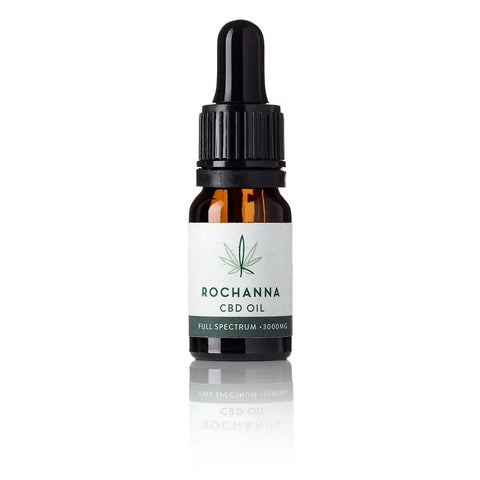In UK, one area that has received significant attention is the use of CBD oil as a sleep aid. According to numerous users, cannabidiol is an effective solution for improving sleep quality, and it may be beneficial in addressing sleep disorders such as insomnia. In this article, we will explore the opinions surrounding the use of CBD oil for sleep and offer advice on how to incorporate it into your routine.
The Science Behind Cannabidiol and Sleep
Cannabidiol (CBD) is one of over 100 cannabinoids found in cannabis plants, which also includes its more famous cousin, THC (tetrahydrocannabinol). While THC is responsible for producing psychoactive effects, CBD does not cause any intoxication or "high." Instead, CBD interacts with our body's endocannabinoid system – a complex network of receptors that regulates vital functions such as mood, appetite, pain perception, and sleep cycles.
Research on CBD and its effects on sleep is still in the early stages; however, some studies have shown promising results. For instance, a 2019 investigation revealed that individuals who consumed CBD experienced an increase in total sleep time and a decrease in the frequency of nighttime awakenings. These findings suggest that CBD oil may enhance sleep quality by promoting longer periods of uninterrupted rest.
A Natural Alternative to Conventional Sleep Aids
Many individuals seeking sleep support turn to prescription medications and over-the-counter sleep aids, but these solutions often come with side effects such as grogginess, dependence, and tolerance build-up. On the other hand, CBD oil is considered a more natural and holistic option for promoting better sleep. Unlike traditional sleep aids, CBD oil is not habit-forming, and it has minimal side effects when used as directed.
Frequent users of CBD oil for sleep have shared that the supplement helps them feel more relaxed, improves their ability to fall asleep faster, and enhances overall sleep quality. Moreover, cannabidiol is also known for its potential pain-relieving and anti-anxiety properties, which may indirectly contribute to a better night's rest for those suffering from chronic pain or stress-related sleep disruptions.

£62.50
Full spectrum
Neutral
30%
Choosing the Right CBD Oil for Sleep
As the CBD industry continues to expand, numerous product options are available in the market ranging from oils, tinctures, capsules, and gummies. When selecting a CBD oil for sleep, it is essential to consider several factors such as potency, purity, and dosing form. Let's discuss some key aspects that can help you make an informed decision.
Potency and Purity
The effectiveness of a CBD oil product typically depends on its potency measured in milligrams (mg) per dose. Higher doses may be more suitable for individuals who require a stronger effect or who have been using CBD for a while. On the other hand, beginners should consider starting with lower potencies and gradually increasing if needed. A high-quality product will have its CBD content verified by third-party lab testing, ensuring transparency regarding the product's potency and purity.
Dosing Form: Oils, Tinctures, Capsules, or Gummies?
Your choice of CBD form will depend mainly on your preference and lifestyle. Factors to consider are the dosing process, absorption rate, and taste. For instance, CBD oils and tinctures allow for quick absorption and easy dosage adjustments by using a dropper, while CBD capsules provide a pre-measured dose and are more discreet. On the other hand, gummies can be an enjoyable way to ingest CBD but may take longer to feel the effects due to their slow absorption through digestion.
Full-Spectrum vs. Isolate: Which is Better for Sleep?
Full-spectrum CBD products contain trace amounts of THC (< 0.3%) along with other compounds such as terpenes and flavonoids that work synergistically to enhance the "entourage effect" - a phenomenon in which combined cannabinoids produce amplified benefits. Some users have reported better sleep results with full-spectrum products as compared to isolate ones (pure CBD). However, your individual preference and sensitivities to THC will ultimately determine which option works best for you.
Tips for Incorporating CBD Oil into Your Sleep Routine
- Establish consistency: Integrate CBD oil into your daily bedtime routine for optimum results – for example, use it 30 minutes before going to bed every night.
- Start with a low dose: Begin with a lower dose of CBD oil (e.g., 5-10 mg) and gradually increase if needed. This approach helps you find the optimal dose without risking potential side effects.
- Prioritize a sleep-friendly environment: Supplement your CBD use with healthy sleep practices such as maintaining a consistent sleep schedule, creating a dark and comfortable bedroom, limiting screen time before bed, and exercising regularly.
- Seek professional advice: Consult your healthcare provider or a qualified cannabis clinician before trying CBD oil for sleep, especially if you're on medications or have any underlying health conditions.
In conclusion, while scientific research continues to explore the potential benefits of CBD oil for sleep, anecdotal evidence and user experiences indicate that it can be a viable option for improving rest. By considering potency, purity, dosing form, and other factors, you can find the right CBD product for your specific needs. Finally, incorporating consistent and responsible use along with additional healthy sleep habits will further enhance your chances of experiencing better-quality sleep.



